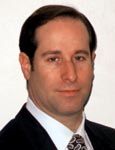- Acne
- Actinic Keratosis
- Aesthetics
- Alopecia
- Atopic Dermatitis
- Buy-and-Bill
- COVID-19
- Case-Based Roundtable
- Chronic Hand Eczema
- Chronic Spontaneous Urticaria
- Drug Watch
- Eczema
- General Dermatology
- Hidradenitis Suppurativa
- Melasma
- NP and PA
- Pediatric Dermatology
- Pigmentary Disorders
- Practice Management
- Precision Medicine and Biologics
- Prurigo Nodularis
- Psoriasis
- Psoriatic Arthritis
- Rare Disease
- Rosacea
- Skin Cancer
- Vitiligo
- Wound Care
Article
Opinions: Changing times: Doctors face unexpected, severe economic challenges
Author(s):
The final quarter of 2008 offered some unexpected and severe challenges to the United States - a collapse on Wall Street, rising unemployment, threatened bankruptcy of at least two of the big three automakers, rising healthcare coverage issues and rising levels of violence in the Mideast. At the same time, the United States elected its first black president and a highly Democratic–weighted Congress. 2009 is likely to be a year of change and readjustment.

Key Points

With all of the potential changes, On Call wondered if dermatologists are optimistic or pessimistic about the coming year.
We asked if they feel potential solutions will be found for the nation's problems. Some dermatologists say that, based on experience, they have no choice but to take a rather jaundiced view of the future.

"Our office, consisting of five dermatologists, has not received any payments from Medicare since June. We're barely making ends meet and are only able to stay open because we also take HMOs and PPOs and a few private patients. If we had a single-payer system, we would be out of business.
"The Democrats plan to represent their plan as choice, when the fact is, it is quite the opposite. They represent government control, and the government has sure made a mess of this. A single payer would be a disaster. We would be out of business."
Dr. Paslin, an assistant clinical professor at University of California, San Francisco, hopes - but isn't convinced - the movement can be stopped.
"I guess it depends on the capacity of the Republicans to filibuster. Every vote counts, and some of the Republicans are fairly weak sisters. They may not stand up in defense of personal freedom.
"Lack of choice has always been repugnant to me. I prefer personal freedom. I don't like the notion of the collective," Dr. Paslin says.
In Santa Cruz, Calif., Michael Dacey, M.D., laughs at the question.
"I would say I'm a bit pessimistic, although we've chosen a specialty where the demand is high. I think primary care physicians will have problems first, with people hesitating to go see their doctor.
"I work with a large multispecialty group, and already, they're seeing emptier urgent cares. On a personal level, I think people even want to save on their co-pay," he says.
Newsletter
Like what you’re reading? Subscribe to Dermatology Times for weekly updates on therapies, innovations, and real-world practice tips.











